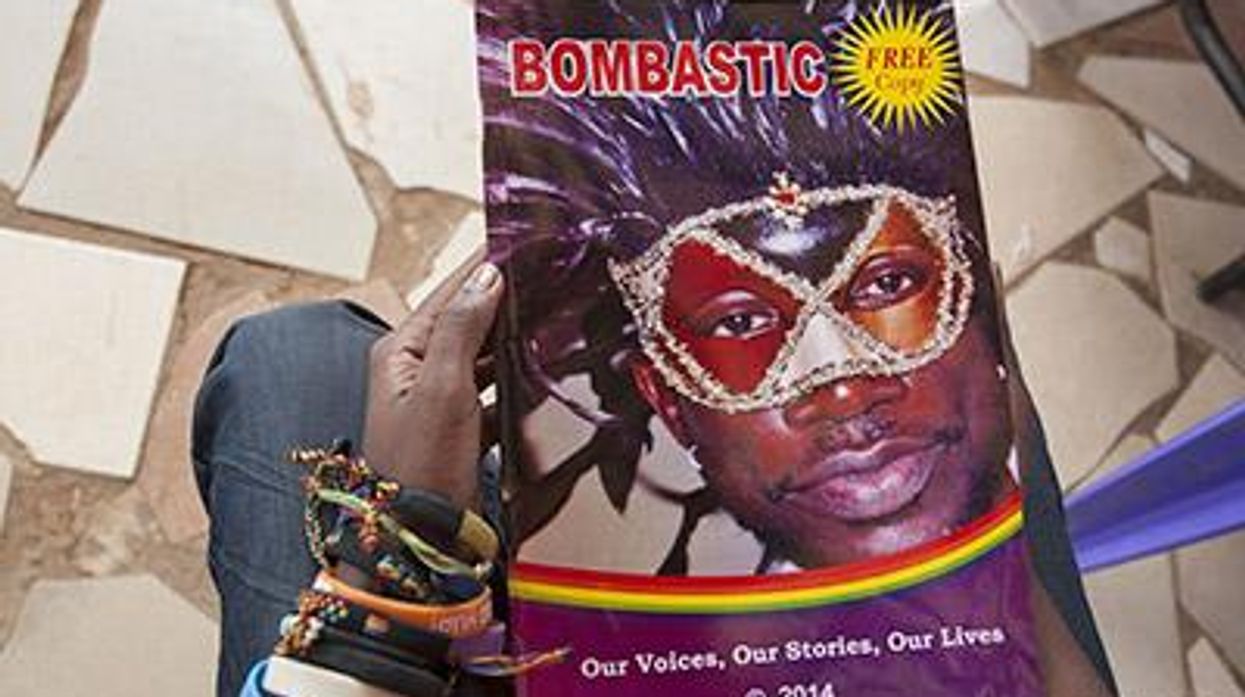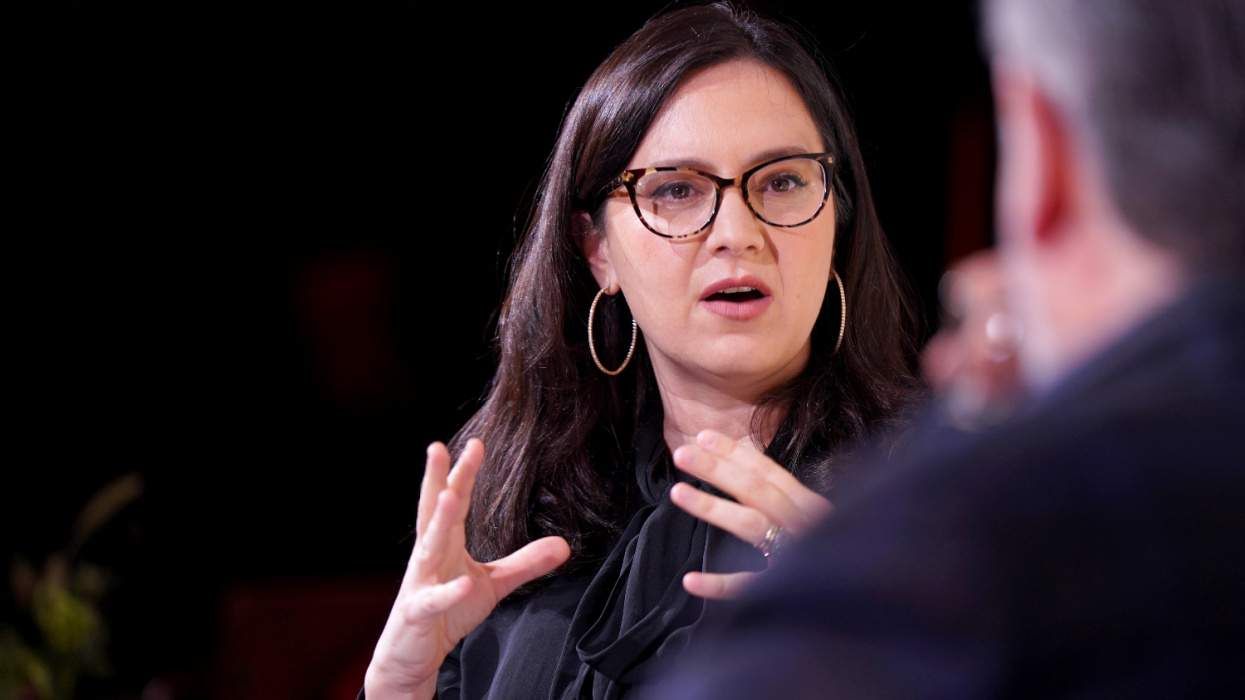The writers, activists, and poets behind Bombastic, a new magazine published by and for LGBTI Ugandans, are bringing real stories, commentaries, and poems by gay, lesbian, bisexual, transgender, and intersex people in Uganda to its people.
The editor is Kasha Jacqueline Nabagesera, arguably the country's most prominent out lesbian, who was personally motivated to combat both tabloid and political antigay propaganda, as she and her community have been frequent victims of both.
"They would target me a lot, they would cook up stories -- how I'm getting married. ... I'm training people to become lesbians," Nabagesera told Agence France-Presse. The 34-year-old Nabagesera told AFP she had been attacked and evicted "so many times" because of media coverage about her sexuality.
"They were writing about 'secrets inside the lesbian's den,'" recalled Nabagesera.
The 72-page glossy magazine, which bears a title that is a nickname Nabagesera herself often goes by, is published privately and distributed for free. Its purpose is to "speak for the many voiceless," wrote Nabagesera in her editor's letter.
She says she and her contributors are "proud" of their sexuality and identity. Nevertheless, some of the writers featured in Bombastic use pseudonyms for their own protection from laws that criminalize their homosexuality and its so-called promotion.
"People have lost housing, jobs, families," Nabagesera told AFP. "One colleague was beaten in broad daylight after appearing in the newspapers."
Nabagesera told AFP the national media played what she called a "big role" in the intimidation and harassment of LGBTI people, naming and shaming them with increasingly frequency since Uganda's Parliament first considered the infamous "Kill the Gays" bill in 2009.
It was in 2011 that Nabagesera's close friend, gay activist David Kato, was beaten to death with a hammer. Just a few months earlier, a Ugandan tabloid newspaper published his picture under a banner reading "Hang Them."
Beginning in 2013, Nabagesera was one of a dozen LGBTI Ugandans who worked with The Advocate to compile a photo essay that shared firsthand stories from these diverse individuals. Although the article received several awards -- including a 2014 GLAAD Award for Oustanding Digital Journalism, Multimedia -- editors with this publication took the story offline after Ugandan tabloid Red Pepper plagiarized the story wholesale, splashing a headline on the front page reading "Uganda's Top Gays Speak: How We Became Homos."
The routine nature of such harassment prompted Nabagesera to start seeking stories for Bombastic in 2013. She told AFP her Facebook inbox was soon flooded with over 500 contributions. Funding for the printing came from crowd-funding.
Nabagesera recruited an editorial team of eight Ugandans to complete the debut issue in December. With free help from foreigners, they also launched a website, Kuchu Times, which Nabagesera said attracts so many visitors that it is "almost crashing every two days."
"We got a lot of support from around the world," said Nabagesera.
Last December she issued a press release announcing a campaign she dubbed "Reclaiming the Media," and with it the launch of Bombastic. "The objective of this campaign," she wrote, "is to end violence against lesbian, gay, bisexual and transgender people countrywide."
Reclaiming messaging from antigay lawmakers -- who had promised a new antigay law as a "Christmas gift" to Ugandans after the "Jail the Gays" law was overturned on a technicality in August -- Nabagesera and her supporters published their first issue.
"We give you Bombastic Magazine as a gift to you all this Christmas," Nabagesera said in the press release. "We share our lived realities in the hope that they will inspire many people who have been filled with hate from politicians and religious leaders seeking political power and cheap popularity."
She and more than 130 volunteers then distributed the magazine across the country and into some unlikely hands, including to Uganda's Parliament, president, and other politicians, as well as churches and media outlets.
Nabagesera says Bombastic has been a "big hit," allowing her to attract correspondents in every country across the African continent. She told AFP the magazine's two phone lines ring off the hook.
But there is still a lot of opposition. Copies in some eastern Ugandan shops have been burned, and distributors in the west have been threatened. Nabagesera says she herself was threatened with legal action after one issue was delivered to a church. And Uganda's ethics minister warned Nabagesera she is at risk of arrest for "promoting homosexuality."
But she refuses to knuckle under in the face of those threats, even one endangering her life -- some have wished "a car could knock you down," she told AFP.
But Nabagesera remains steadfast. "It is our wish, our hope, that if people read just one story, it changes their attitude," she said.
Her mission remains to "stand up and fight for others who don't have the support."
Read the digital version of Bombastic here.















